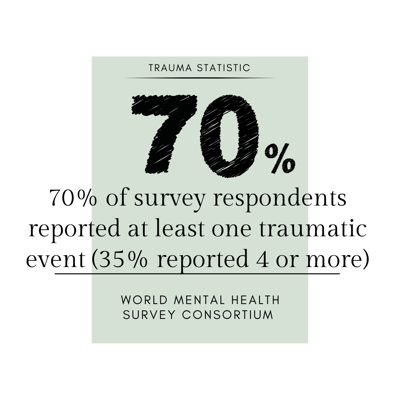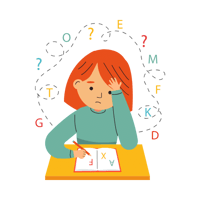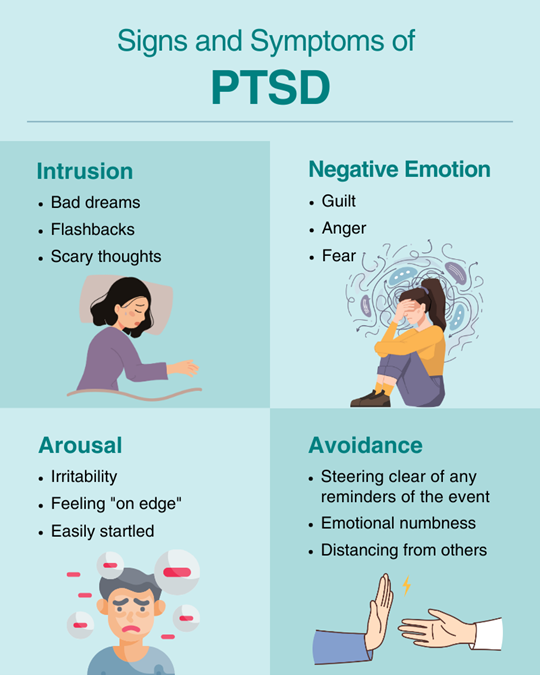Trauma Counselling
From surviving to thriving - start your healing journey

What is Trauma?
Trauma Therapy for Kitchener Waterloo
Trauma may initially seem reserved for extreme situations like soldiers in combat or victims of violent crimes, yet, most people will encounter at least one trauma in their lifetime.
These incidents range from dramatic events like car accidents or assaults to broader circumstances causing physical or emotional harm, such as the enduring impact of the Covid pandemic.

Classifying trauma into distinct categories reveals its diverse nature:
- Acute Trauma involves a single, overwhelming incident with immediate emotional and physical reactions, like a car accident or natural disaster.
- Chronic Trauma results from prolonged exposure to distressing events, like ongoing abuse or living in a war zone, accumulating complex effects over time.
- Complex Trauma emerges from exposure to multiple traumatic events within interpersonal relationships, leading to enduring emotional and psychological challenges.
Symptoms of Trauma
Am I showing signs of Trauma?
Navigating the aftermath of a traumatic experience is a complex journey that extends beyond the visible scars. The impact of trauma influences not only your emotional landscape but also the physiological functions of your brain.
Understanding the symptoms that may manifest is crucial, as they serve as signals, pointing towards the lingering effects of traumatic events.

Emotional Distress
It is common to feel intense emotions such as anxiety, fear, sadness, or anger in response to reminders of a distressing event.

Intrusive Thoughts
Individuals may experience unwanted and distressing memories or flashbacks that can feel overwhelming and difficult to control.

Difficulty Concentrating
You may find it difficult to focus or pay attention, as your mind may be preoccupied with thoughts of the traumatic experience.

Emotional Numbing
Feeling detached or disconnected from others, reduced ability to experience pleasure or positive emotions.
Lets us Help you Find the Right Match
Right Therapist, Right Plan, Real Support
Whether it's a sudden shock or prolonged struggle, understanding your trauma with a therapist is the first step towards healing and reclaiming your life.
How Can Therapy Help With Trauma?
When individuals face traumatic experiences, a natural instinct pushes them to avoid dwelling on the distressing events. While this instinct serves as protection from immediate pain, avoiding the emotional fallout of trauma can hinder the healing process. Compensating habits may emerge, inadvertently worsening the situation. For instance, someone might withdraw from social activities to escape anxiety, perpetuating isolation and impacting mental health negatively.
Trauma therapy steps in to break this cycle, guiding individuals to confront their trauma and embark on a healing journey. By fostering healthy coping mechanisms and transforming patterns of thinking, trauma therapy empowers individuals to navigate and work through those distressing situations.
.png)
Trauma therapy can facilitate the reintegration of the nervous system and assist in releasing the cognitive burdens associated with your traumatic experiences.
Different Types of Trauma Therapy
There are different approaches to trauma therapy, but they all have the same goal: to help you escape the prison of unresolved trauma. It's important to note that the statistics provided below do not imply that one therapy is inherently superior to another. Rather, the effectiveness of a therapy modality depends on many factors, including the individual's unique experiences and needs. Here are some of the ways therapists approach this work.
Cognitive Behavioural Therapy (CBT)
CBT was created to help patients identify and change patterns of thoughts and behaviours that are causing distress. CBT has decades of research supporting it, and it's been shown to be remarkably effective in dealing with trauma and Post Traumatic Stress Disorder. Clinical studies and evidence based reviews have shown that 61-82% of participants treated with CBT lost their PTSD diagnosis (NIH).
Eye Movement Desensitization and Reprocessing (EMDR)
EMDR therapy works directly with the brain and how it stores and processes memories. In EMDR Therapy, clients undergo bilateral stimulation, which involves techniques like alternating eye movements, tapping, or auditory stimuli. While this is happening, the therapist walks them through the distressing memory. As this is repeated, the brain is able to process the memory and start to heal from the trauma. According to the EMDR Institute, some studies show that 84%-90% of single-trauma victims no longer have post-traumatic stress disorder after only three 90-minute sessions.
Cognitive Processing Therapy (CPT)
CPT aims to address the cognitive distortions and negative beliefs resulting from trauma. Through structured exercises and discussions, individuals learn to challenge and reframe their thoughts about the traumatic event. Studies have shown that CPT can significantly reduce PTSD symptoms and improve overall functioning.
Narrative Therapy
Narrative therapy focuses on exploring and reshaping the narratives individuals construct about their traumatic experiences. By externalizing the problem and examining alternative narratives, individuals can gain a sense of agency and control over their lives. This approach emphasizes storytelling as a means of understanding and re-authoring one's life story in a way that promotes healing and resilience.
Prolonged Exposure Therapy (PE)
To help patients overcome their reticence to think about what happened, patients learn to face their feelings by gradually being exposed to their triggers. The therapist supports them in a safe environment as they become accustomed to the responses that come up. Some studies have shown that 68% of people who complete PE treatment, no longer meet diagnostic criteria for PTSD.
As you can see, Trauma Therapy offers diverse approaches to cater to unique needs. The power to choose the right therapeutic avenue lies in recognizing that healing is a personalized journey, and at Trillium Counselling, we're here to guide you towards the path that resonates with your healing process.
Trauma can extend beyond the event itself, intricately affecting the brain's structure and function. The stress response system, comprising the amygdala and hippocampus, becomes hyperactive during traumatic experiences, leading to heightened emotional responses and challenges in memory processing. Extended exposure may even reshape the prefrontal cortex, impacting decision-making, emotional regulation, and the ability to assess threats effectively.
The disruption doesn't stop at the brain's structure; it can also create an imbalance within the neurotransmitters that influences mood and stress levels. This intricate relationship between traumatic experiences and brain function often gives rise to conditions like Post-Traumatic Stress Disorder (PTSD), affecting various cognitive and emotional functions.
What does PTSD feel like?
Support Starts Here
You don't have to carry the weight of trauma alone. Trillium Counselling's experienced professionals are here to help you navigate through the challenges and find a path towards healing. To schedule an appointment for trauma therapy, reach out to us today.
Understanding the Impact of Trauma on the Brain:

What is PTSD and Do I have it?
Trauma is a broad term encompassing the emotional response to distressing events, while PTSD is a diagnosed mental health condition characterized by specific symptoms resulting from exposure to trauma. PTSD symptoms are categorized into four main areas:
It's essential to recognize that not everyone who experiences trauma develops PTSD, and seeking professional help is crucial for accurate diagnosis and effective treatment.
Intrusive Thoughts: Distressing memories, flashbacks, or nightmares related to the trauma invade your consciousness.
Avoidance Behaviors: Efforts to steer clear of reminders or discussions about the traumatic event to escape its emotional grip.
Negative Changes in Mood and Thinking: Persistent negative emotions and distorted beliefs can cast a shadow over your daily life.
Changes in Arousal and Reactivity: Heightened alertness, irritability, and difficulties with concentration and sleep disrupt your overall well-being.
FAQs
Therapy works best when the 'fit' is right with your therapist. That’s why we carefully match you with someone whose expertise fits your needs and preferences. Building a strong therapeutic relationship is key to creating a supportive and effective experience.
Before meeting your therapist, you’ll complete a brief intake form. Your first 50‑minute session focuses on what brings you in, your goals, relevant history, and what success would look like. We’ll explain confidentiality and co‑create a plan so you know what comes next. It’s normal to feel nervous—your therapist will guide the pace.
The frequency of sessions depends on your needs and goals. Many people start with weekly or bi-weekly appointments and adjust as they make progress. The total number of sessions is unique to you—your therapist will work with you to find the right approach.
Depending on your experience and goals, our therapists may use Cognitive Behavioural Therapy (CBT), Eye Movement Desensitization and Reprocessing (EMDR), Cognitive Processing Therapy (CPT), Narrative Therapy, or Prolonged Exposure Therapy. Each approach is tailored to your unique needs, offering compassionate support as you process trauma and build resilience.
Most of our services are covered by extended health benefit plans. Coverage varies with every plan, so please check your specific plan or contact your provider to confirm your benefits.
Most employer benefits cover therapy with a Registered Social Worker (MSW, RSW) or a Registered Psychotherapist (RP). We can direct bill to most major insurers when your plan allows it; otherwise, we email insurance‑ready receipts after your session.

Last Reviewed Aug 5 2025 by Samantha Kittell
Samantha has a Masters Degree in Social Work and a Bachelors Degree in Psychology. She has 7 years of experience in social services and is registered with the OCSWSSW.Samantha has dedicated herself to providing compassionate and evidence-based trauma therapies such as Cognitive Processing Therapy (CPT) and Eye Movement Desensitization and Reprocessing (EMDR), supporting individuals on their journey towards healing.
Not sure yet? Let’s talk it through.
If you’d like to ask questions or explore your options first, book a free 20-minute matching consult or give us a call (226-752-8857) . One of our team members will help you find the right therapist and next steps that feel comfortable for you.
%20(1).png?width=200&height=80&name=Trillium%20Counselling%20Logo%20(999%20x%20398%20px)%20(1).png)

















